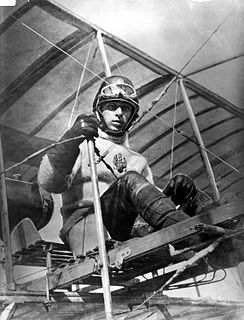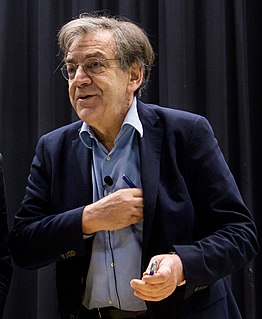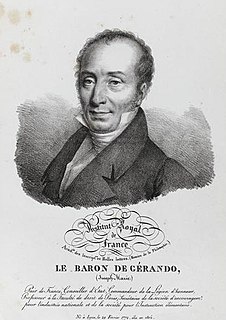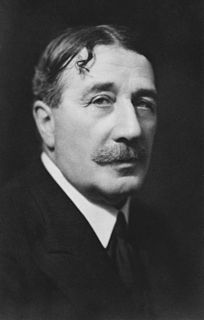A Quote by Bertrand Russell
The frequency with which a man experiences lust depends upon his own physical condition, whereas the occasion which rouse such feelings in him depend upon the social conventions to which he is accustomed
Related Quotes
To be successful, a man must exert an effective influence upon his brothers and upon his associates, and the degree in which he accomplishes this depends on the personality of the man. The incandescence of which he is capable. The flame of fire that burns inside of him. The magnetism which draws the heart of other men to him.
I discovered early that the hardest thing to overcome is not a physical disability but the mental condition which it induces. The world, I found, has a way of taking a man pretty much at his own rating. If he permits his loss to make him embarrassed and apologetic, he will draw embarrassment from others. But if he gains his own respect, the respect of those around him comes easily.
What one thinks continually, they become; what one cherishes in their heart and mind they make a part of the pulsation of their heart, through their own blood cells, and build in their own physical, that which its spirit and soul must feed upon, and that with which it will be possessed, when it passes into the realm for which the other experiences of what it has gained here in the physical plane, must be used.
And because the condition of Man, (as hath been declared in the precedent Chapter) is a condition of Warre of every one against everyone; in which case every one is governed by his own Reason; and there is nothing he can make use of, that may not be a help unto him, in preserving his life against his enemyes; It followeth, that in such a condition, every man has a Right to every thing; even to one anothers body.
Pathology has made us acquainted with a great number of states in which the boundary lines between the ego and the external world become uncertain or in which they are actually drawn incorrectly. There are cases in which parts of a person's own body, even portions of his own mental life - his perceptions, thoughts and feelings -, appear alien to him and as not belonging to his ego; there are other cases in which he ascribes to the external world things that clearly originate in his own ego and that ought to be acknowledged by it.
Each man is contained and constrained, on entering social life, to fit his own life in, just as he fits his words and thoughts into a language that was formed without and before him and which is impervious to his power. Entering the game, as it were, whether of belonging to a nation or of using a language, a man enters arrangements which it does not fall to him to determine, but only to learn and respect the rules.
Philosophers have very justly remarked that the only solid instruction is that which the pupil brings from his own depths; that the true instruction is not that which transmits notions wholly formed, but that which renders him capable of forming for himself good opinions. That which they have said in regard to the intellectual faculties applies equally to the moral faculties. There is for the soul a spontaneous culture, on which depends all the real progress in perfection.
Man himself is an enigma in motion; his questions never stay asked; whereas the mold, the footprint, and by natural extension, the statue itself, like the vaults, the arches, the temples with which man records his own passing, remain immobile and fix a moment of man's life, upon which one might endlessly meditate.
In the absence of government each man learns to think, to act for himself, without counting on the support of an outside force which, however vigilant one supposes it to be, can never answer all social needs. Man, thus accustomed to seek his well-being only through his own efforts, raises himself in his own opinion as he does in the opinion of others; his soul becomes larger and stronger at the same time.
Man's characteristic privilege is that the bond he accepts is not physical but moral; that is, social. He is governed not by a material environment brutally imposed on him, but by a conscience superior to his own, the superiority of which he feels. Because the greater, better part of his existence transcends the body, he escapes the body's yoke, but is subject to that of society.



































